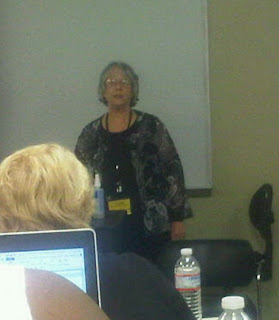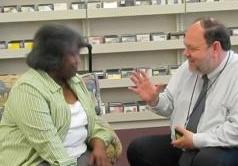Freedman's Bureau Document 1867 Revealing 1st Freedman School
Established by "Colored" Baptist Church of Ft. Smith, Arkansas
For former slaves, education was the one thing wanted by former slaves for their children.
Ft. Smith Arkansas was the home of one of the Field Offices of the Bureau of Refugees, Freedmen & Abandoned Lands. Because of the large number of Union soldiers black and white who were encamped in Ft. Smith when the Civil War ended, Ft. Smith became the home of one of the larger field offices in the state. The Ft. Smith office oversaw affairs pertaining to black citizens who were once enslaved in the area. The bureau also served white refugees needing assistance after the war.
The Freedman's Bureau as it was commonly known, operated in Ft. Smith for the first several years after the war, and a series of letters reflect the many issues that faced the newly freed slaves.
A letter found in the documents of the Freedman's Bureau, illustrate that there was already a Baptist Church established in the city, and the pastor at that time, was a man called Austin Thomas.
The black population was anxious to have a place where their children could be taught on a regular basis, and Thomas approached the officer of the Bureau to offer the structure of the black Baptist Church to be used for teaching the children.
A closer view of the document:
A roughly transcribed wording of the document states:
Office Supt. R.F. & A.L.Ft. Smith, Arkansas, August 24, 1867
"in A state of agreement made and entered into this day between E.S. Parker, Supt R.F. & A.L. and Austin Thomas Pastor of the Baptist Church (Col'd) of the City of Ft. Smith Arkansas,
the aforesaid Austin Thomas does hereby agree to let the Baptist church be used for teaching school in under the direction of this office from Monday morning till Friday evening, nights excepted for a term of not less than three months and before the house is given up after that time, there must be at least two months notice given to this office.
There is to be no rent paid by the Supt for use of house and the house is in no way to be charged so that it would interfere with tenure servics given (illegible) and for(?) and seal this treaty, first day of May 1867
E.S. Barker Supt R.F. & A.L. (Seal)
Austin Thomas (Seal)
Pastor of Baptist Church
This document reflects little known history of the city of Ft. Smith, in western Arkansas. Although there was some education taking place, it has often been stated and believe that the first formal teaching began in the 1880s, when E. O. Trent of Ohio, migrated to the city and established the first formal school.
However, the value of the Freedman's Bureau records reflect an earlier history and a desire that existed among newly freed children to have their children educated. Thanks to Pastor Austin Thomas who donated the use of his church, young children in western Arkansas were able to begin to have a formal education during those critical years following the Civil War.
An Image of a School for Children of Former Slaves in NC
Although the exact location of the original Colored Baptist Church is not yet known, it should be recorded that it was the Black Baptist Congregation of Ft. Smith Arkansas, that paved the way in 1867 for formal education of former slave children to have the much sought opportunity to learn.


































